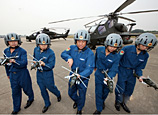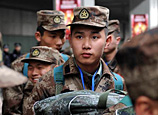
The international conference concerning the establishment of a free zone of nuclear weapons or other mass destruction weapons in the Middle East was originally scheduled to be held in Helsinki from Dec. 18 to Dec. 20. The international community wants to help reduce security threats in the Middle East and inject impetus to the peace process. However, the United States as one of the conference convening parties suddenly changed its mind and decided to postpone the conference.
The U.S. stressed that there are "fundamental differences" among Middle East countries concerning the arrangements of regional disarmament and arms control mechanisms. It seems to Washington that the differences can only be resolved through consultation between the countries in the region and external countries should not impose "a process" to the Middle East; and the United States does not support any international conference where any one country or region might be "under pressure or isolated".
As we all know, the country which "might be under pressure or isolated" could be an ally of the United States. For decades, the United States has adopted a laissez-faire attitude toward the country dissociating from the "Nuclear Non-Proliferation Treaty" and made up so many excuses to hinder the establishment of a nuclear-free zone in the Middle East. At the beginning of this century, the United States did not hesitate to rough up Iraq which it suspected to have developed weapons of mass destruction. In recent years, the United States again brought both economic sanctions and saber-rattling on Iran which it suspected to have developed nuclear weapons.
U.S. is really good at employing double standards
The proliferation of nuclear weapons and other weapons of mass destruction has been a major threat to peace in the Middle East. The establishment of a nuclear-free zone in the region is a common wish of most Middle Eastern countries and the international community. Related resolutions have been passed at the United Nations General Assembly since 1974. It was determined at the 2010 Review Conference on Nuclear Non-proliferation Treaty that an international conference on a nuclear weapons-free zone in the Middle East should be held in 2012. The conference is a political commitment with broad consensus, and it is unreasonable and irresponsible of the United States to delay the conference due to so-called fundamental differences.
The establishment of a nuclear-free zone in the Middle East is an important part of promoting peace and stability in the region. In order to achieve this goal, all parties concerned should uphold new security concepts, abandon the hegemonic mentality and power politics, and curb the proliferation of weapons of mass destruction from the root. Under current circumstances, this task has become more urgent, and unnecessary delays will only make things worse. U.N. Secretary-General Ban Ki-moon as well as the British and Russian ministries of foreign affairs has issued statements expressing their hopes that the conference can be held in early 2013.
The United States is a permanent member of the United Nations Security Council, and has irreplaceable influence on Middle Eastern affairs. It is unwise of the country to adopt double standards in this regard. The Middle East is the world’s most important source of energy and the key to global economic stability. The United States itself will suffer from economic turmoil once the world economy goes wrong.














 Cumquat market in S China's Guangxi
Cumquat market in S China's Guangxi


![]()
